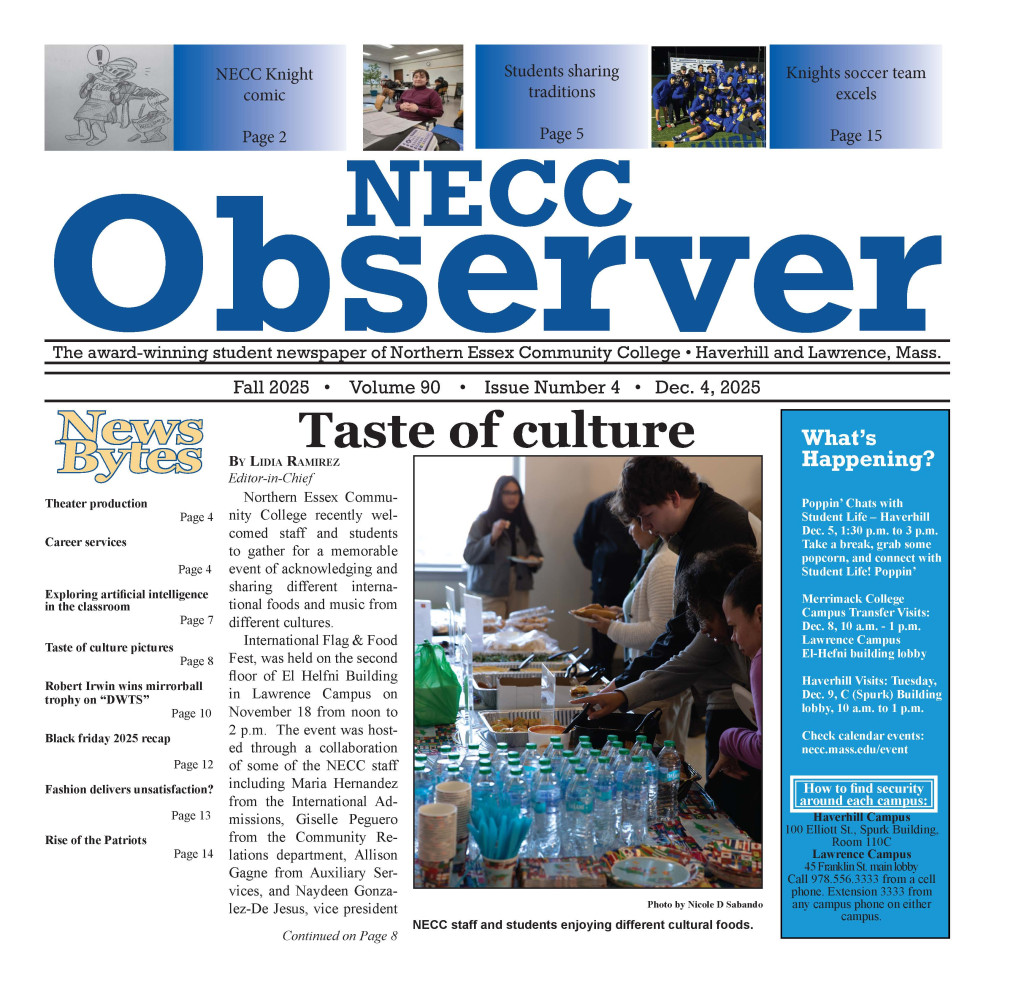There have been many questions surrounding what the rest of the school year will look like for Northern Essex students and staff.
In order to answer some of these questions and clarify what the future looks like for the college, a remote student town hall was held on Nov. 10.
The meeting was held by the Director of Student Success management, Audrey Ellis, and NECC VP, Bill Heineman. When speaking about the decision to make classes fully remote this fall, Heineman said “the decision to go online, was a decision that would give you certainty about how the fall was going to go as well as is meant to protect your health,” as many students stated that the disruption that occurred last spring was the most challenging aspect of the semester.
By making classes fully remote throughout the current semester both students and staff were able to plan accordingly and didn’t have to worry about their schedules changing.
However, this did provide a large shift in the way most professors and staff would run their classes/ operations.
The process of building online classes is tedious and time consuming, and because of COVID-19 the time was shortened from about 9 months of preparation to a mere 2.
With the end of the first fully remote semester at NECC approaching, it’s important to note that “student ambassadors are still available for [studets],” according to Ellis.
They are able to help with the inner workings of current classes, preparation for finals, and to help guide students through the rest of this trying school year.
What seems to be the most commonly asked question right now is “what will the upcoming Spring semester at NECC look like?”
Heineman answered this question, stating that “[he] really recognize[s] that there’s a lot of value in classmates getting together and instructors and students being together at the same time.”
This past Fall was fully remote and asynchronous because students weren’t given enough time to weigh their options, but since there is more time to plan for the coming Spring semester they have “been encouraging faculty to to put those elements into the course,” speaking about scheduled zoom meetings.
As of now, Spring classes will still be held online but there is the hope that professors will try to dedicate certain times for classes to meet remotely once or twice a week.
Of course, these interactions will differ depending on both the type of course and the professor. There is a lot that goes into these decisions, as they affect the lives of thousands of students and staff members.
Ellis stated that the administration tries their “best to decide as early as possible, so [the] students have ample time to prepare.”
Heineman also spoke on this topic, saying “The decision for fall was driven by multiple factors,” such as government guidelines, health expert predictions, and the health and comfort of students and staff.
He also made sure to stress that “the health and safety of [the] students and employees was the first priority.”
Ellis said her “role is unique in that [she] get[s] to adapt [her] work to really keep the students’ experience is the top priority,” which is why she helped create the student ambassadors program to help students out during this unconventional year.
Since there has been a lot going on in the world recently, Ellis wants all students to feel comfortable contacting her (aellis@necc.mass.edu) or the student ambassadors (studentambassadors@necc.mass.edu) if they need any help.
Lastly, if any students have feedback surrounding the recent changes due to COVID-19 they shouldn’t hesitate to send an email to expectmore@necc.mass.edu.

